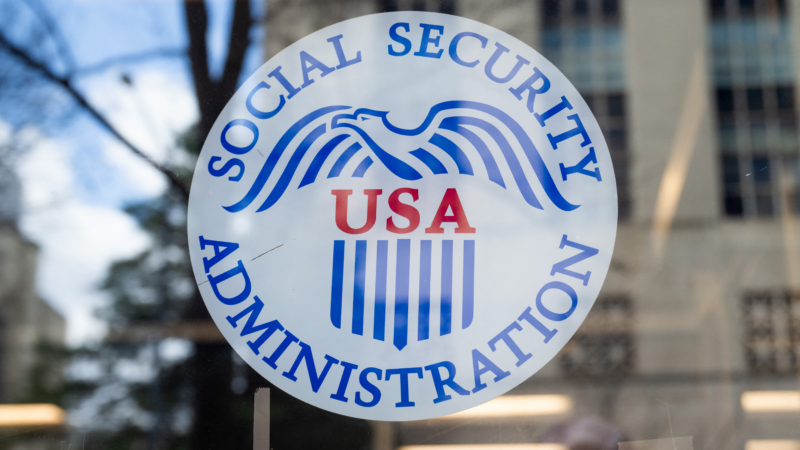Social Security officials partially walk back plans for in-person verification
The Social Security Administration is revising proposed changes that would have required some beneficiaries to prove their identity in-person when seeking services.
Officials said in a statement Wednesday that they are exempting people who apply for Medicare and disability benefits, as well as supplemental income help for the poor, from having to prove their identity in-person at a social security office if they are unable to use the agency’s online system.
They also announced they are pushing back the start of the new policy by two weeks, to April 14.
The new rules, which were first announced last week, were met with concerns from advocates for seniors and people with disabilities, as well as lawmakers. Dozens of Democratic members of Congress sent a letter to agency leaders last week asking them to reconsider the change because it would “create additional barriers” for people seeking services — “particularly for those who live far from an office.”
“We have listened to our customers, Congress, advocates, and others, and we are updating our policy to provide better customer service to the country’s most vulnerable populations,” Lee Dudek, acting commissioner of Social Security, said in the Wednesday statement.
For decades now, claimants have been able to complete their benefit application process entirely by phone.
But last week, Social Security officials announced that people who cannot prove their identity using the agency’s online system would be required to show up in person when seeking benefits or changing direct deposit information.
Dudek, who was tapped for the role by President Trump, said the policy change was an effort to carry out the administration’s goal of protecting benefits while rooting out waste and alleged fraud.
“For far too long, the agency has used antiquated methods for proving identity,” Dudek said in a statement. “Social Security can better protect Americans while expediting service.”
But advocates and others warned the changes were in service of inflated and unsubstantiated fraud claims.
“The new policy is supposedly intended to prevent ‘fraud,’ without any proof that phone claims were being paid out fraudulently,” Max Richtman, president and CEO of the National Committee to Preserve Social Security and Medicare, said in a statement last week. “The new process would force seniors and people with disabilities to navigate a needless technical hurdle in applying for their earned benefits.”
According to the agency, these new identity requirements will now apply only to people seeking retirement, survivor or auxiliary benefits.
As of last month, more than 50 million Americans received retirement benefits from the SSA and thousands of Americans newly qualify for benefits every day.
Venezuela: Maduro’s enforcer Cabello still central to power
The ousting of Venezuela's president raised hopes of change — but the politician now controlling the streets shows how little has really shifted.
Amid ICE clashes, New Hampshire bishop urges clergy to prepare their wills
The Episcopal bishop of New Hampshire told priests protesting ICE to get their wills and affairs in order. Some praise the bishop, while other priests say they never signed up to be martyrs.
New York Giants hire John Harbaugh as coach after identifying him as their top choice
Harbaugh joins the Giants 11 days after he was fired by the Baltimore Ravens. The Super Bowl champion is now tasked with turning around a beleaguered franchise.
US launches new retaliatory strike in Syria, killing leader tied to deadly Islamic State ambush
A third round of retaliatory strikes by the U.S. in Syria has resulted in the death of an Al-Qaeda-affiliated leader, said U.S. Central Command.
NASA rolls out Artemis II craft ahead of crewed lunar orbit
Mission Artemis plans to send Americans to the moon for the first time since the Nixon administration.
Trump says 8 EU countries to be charged 10% tariff for opposing US control of Greenland
In a post on social media, Trump said a 10% tariff will take effect on Feb. 1, and will climb to 25% on June 1 if a deal is not in place for the United States to purchase Greenland.







